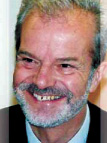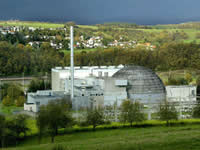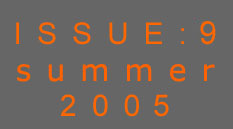
News from Germany
Wolf-Dieter Krebs KTG 23.06.05

|
Wolf-Dieter Krebs
Past KTG President and
ENS Board member
 |
Energy policy has moved back into the center
of the political debate in Germany. The composition of the future
energy mix is one of the current key topics. The parties supporting
the present federal government in Berlin (Socialdemocrats and
Greens) heavily lost the last state election in Northrhine-Westphalia
in May. In a feeling of resignation Chancellor Schröder is
now going for early federal elections this fall, a year earlier
than normal. This is quite abnormal for Germany due to constitutional
restraints.
The emerging overwhelming election campaign issues are economic
slow-down (almost stagnation) and resulting high unemployment
rates in the order of 10 percent as well as the reasons for them.
High energy, especially electricity prices are strongly claimed
by the electricity consuming industry as a major competitive disadvantage.
Electricity intensive industries like aluminum smelting plants
and basic chemistry are already shifting production abroad. The
massive expansion of renewable energies and energy tax increases
have more than eaten up the price decrease due to market liberalization.
The phase-out of nuclear power as presently fixed by law will
de facto start during the next legislative period, only the 350
MWe Obrigheim NPP has been shut down in May 2005.
| 
NPP Obrigheim
|
The present opposition parties
are calling for life extension of the 17 operating NPP and
an economically reasonable further support of renewables.
A debate on new nuclear power plants is mostly avoided for
the time being. But there is a strong demand for immediate
completion of the exploration in the Gorleben salt mine
for disposal of HAW and for putting into operation the Konrad |
iron ore mine for non heat producing radioactive
waste. What is important: This is openly supported by the state
government of Lower Saxony where the two sites are located.
The public at large is mentally split. Only a
small minority “wants or likes” nuclear power but
a majority of the German population is now convinced that the
existing NPP will eventually be operated longer than the phase-out
agreement states.
The electric utility industry for the time being
lives quite well with the phase-out agreement which allows pretty
undisturbed operation of the 17 NPP. However the utilities are
facing enormous challenges: Up to 40,000 MWe of new generating
capacity must be installed in Germany by 2020. Half of this is
the nuclear power being phased out, the other half is fossil power
generated by ageing plants which will need to be replaced. In
addition a significant upgrade of the high voltage grid will be
needed in order to transmit wind power generated in northern Germany
to the south. This means immense investments and far-reaching
decisions. The key parameter in the utility decision-making process
is the political boundary conditions. The utilities demand from
any new government a clear definition on a long-term basis and
a reasonable weighing of the numerous criteria which steer the
energy mix into different directions. This goes far beyond any
just national assessment. The media and the public increasingly
realize that a sensible energy mix can only be defined by a global
assessment. No clear decisions will lead to postponed investments
and the bill will have to be paid: Not by the utilities or the
politicians but by industrial and private electricity consumers
and indirectly by the unemployed, i.e. by the whole nation.
For many years KTG has supported common sense
thinking: Don’t put all your eggs in one basket. We need
all energy options including nuclear power and only this low cost
base load can earn the money needed to develop renewable energies
into competitiveness.
|









